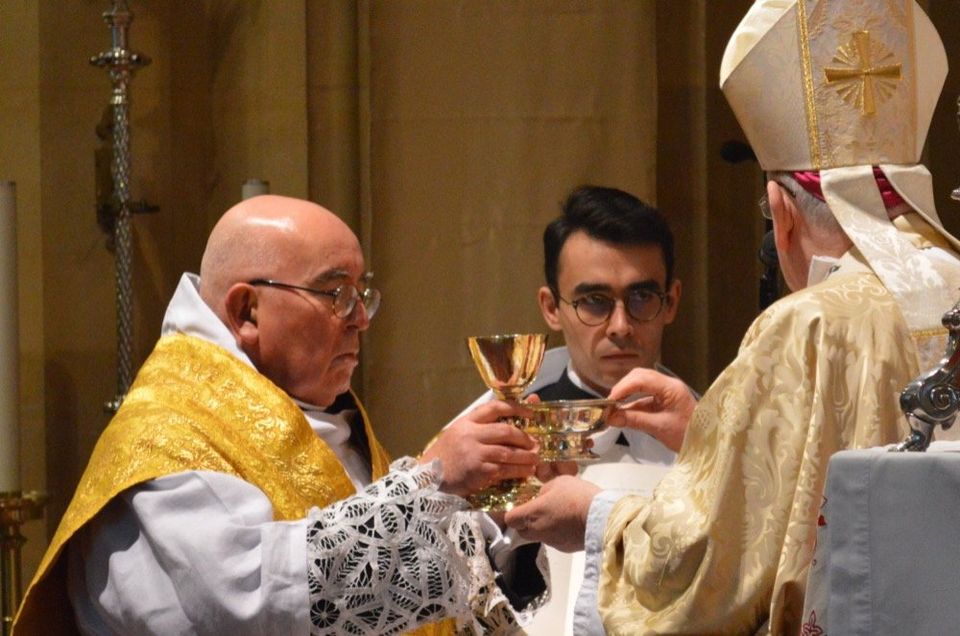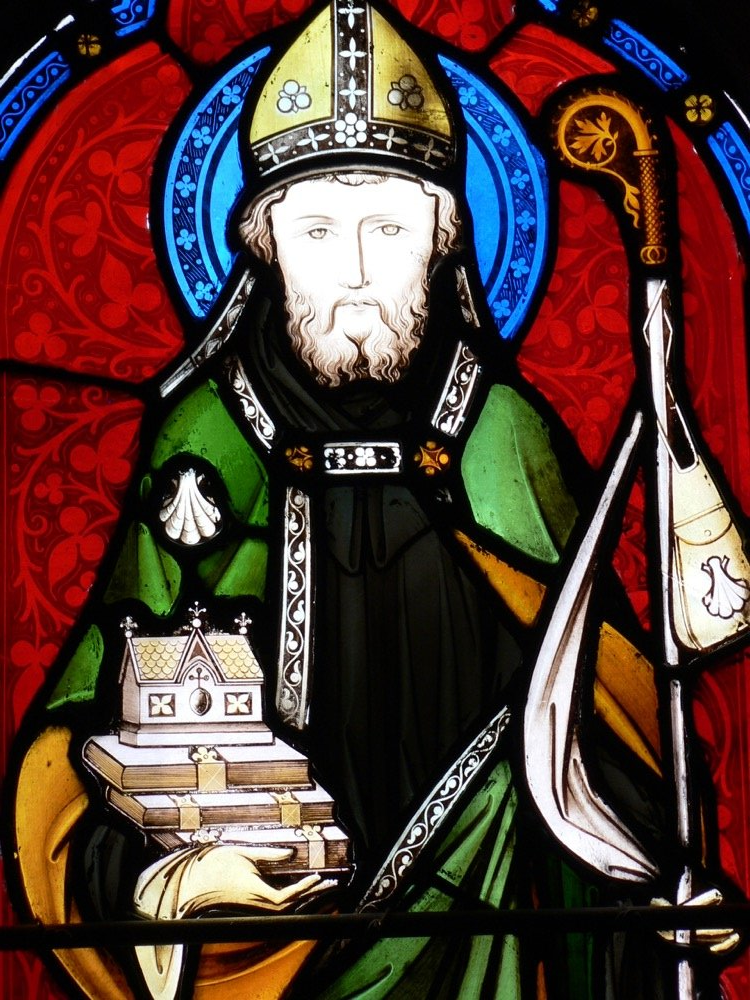The Saintly Heroes of Cardinal Basil Hume
At his ordination on the feast of Saint Benet Biscop, Archbishop George Stack presented this Northumbrian saint as a model of monastic life and missionary engagement. He spoke of how the saints of the North had inspired Cardinal Basil Hume in his monastic life and pastoral ministry.
During the ten years in which I worked with Cardinal Basil Hume in Westminster, one if his great delights was to travel during the summer to Northumberland, there to walk in the footsteps of the Northern Saints. Paulinus, Aidan, Hilda and Cuthbert were those under whose shadow he felt he had lived his monastic life. He loved to speak and write about what Paulinus said about the need for community in our lives. About what he had learnt from Aidan’s simplicity and singlemindedness. About his great devotion to Cuthbert and his example of solitude and silence.
Another of his saintly heroes was St. Benet Biscop whose feast we keep today and who sets the theme for the priestly ordination of Brother Alistair Findlay. Born in Northumbria about the year 625, Benet personified a pre-Brexit monk, making pilgrimages to Rome on many occasions and becoming imbued with the Roman traditions as the Church in these islands emerged from its Celtic embryo. Having stayed at the great Abbey of Lerins in southern France, he was familiar with the turmoil of the semi Pelagian heresy and the disagreements which could colour the life of the Church. The Abbey was the epicentre of the turmoil. Nonetheless, in 672 he founded the monastery of St. Peter in Wearmouth, Sunderland, and introduced the Roman chant and the new learning, which made possible the production of the earliest complete Bible in Latin, the Codex Amiatinus, in the 8th century. The British Library exhibition is the place to see the wonders of this achievement.He even introduced continental stained glass into this country as a means of glorifying the worship of God.
Why this magical mystery tour of the lives of the Northern Saints? Because Benet Biscop presents a model of monastic life and missionary engagement which will be an inspiration to Dom Alistair as he fulfils the twofold role of the contemplative life and the important vow of the pastoral mission so close to the heart of the English Benedictine Congregation. I experienced at first hand how Basil Hume combined the importance of community with the practice of solitude in his interior life. How he moved in the world of politics and power and yet maintained a simplicity of personal life which was an example to us all.
As always, it was in prayer and contemplation that he gained the strength and wisdom to engage in the public mission to which he was called as Archbishop of Westminster. And to which our new priest will be called as he lives the monastic life and offers service to the mission of the church in this place. I love the phrase “You should learn to pray with the Bible in one hand and the newspaper in the other”. In other words, one purpose of our prayer is to bring together the many different worlds we inhabit in one life. The outer world of activity and responsibility and public engagement with the inner landscape of our lives, when “Heart speaks to heart” in the silence of the heart.
The scripture readings for today’s feast of St. Benet Biscop give a perfect handbook for the life of a monk and a priest. Jesus asks Simon Peter three times “Do you love me more than these?” Peter grows exasperated. “Lord, you know everything. You know that I love you”. Jesus wasn’t looking for affirmation in this questioning. We all know that Peter was later to deny his Lord three times. The promise of love has to be renewed every day and, when things are most difficult, renewed more intently.
The questions Jesus asked of Simon Peter are reflected in those asked of the one to be ordained priest today. They are expressions of that probing and self awareness and willingness to give oneself completely to the Mystery of Faith which he will both celebrate and receive from now on. “Are you resolved to discharge without fail the office of priesthood”. “Are you resolved to celebrate the mysteries of Christ faithfully and religiously for the good of the people”. “Are you resolved to exercise the ministry of the word worthily and wisely”. “Are you resolved to consecrate your life to God for the salvation of his people”. “I am. I will. I do. With the help of God”. “Simon, son of John, do you love me?”
The reading from the Frist Letter of Peter teases out the implications of the replies that Brother Alistair will make. “Watch over the flock, not simply as a duty but gladly. Not for sordid money (or status, or power) but because you are eager to do it. Never be a dictator over anyone, but be an example that the whole flock will follow”. How contradictory is that to the age in which we live, demanding personal rights and privileges and prerogatives. The sad and subtle movement from covenant to contract has even affected the priesthood. All contradicted in the totality of self giving of Jesus himself and in his commission to Peter “Feed my sheep”.
Three times Jesus asked Peter “Do you love me”. The response is a sign of a deepening and ongoing relationship, changing and maturing as our discipleship of the Lord develops and our ministry grows. That is why these words spoken by the bishop to the ordinand at the conclusion of his questioning are so telling:
“May God who has begun the good work in you bring it to fulfilment”. Amen.











